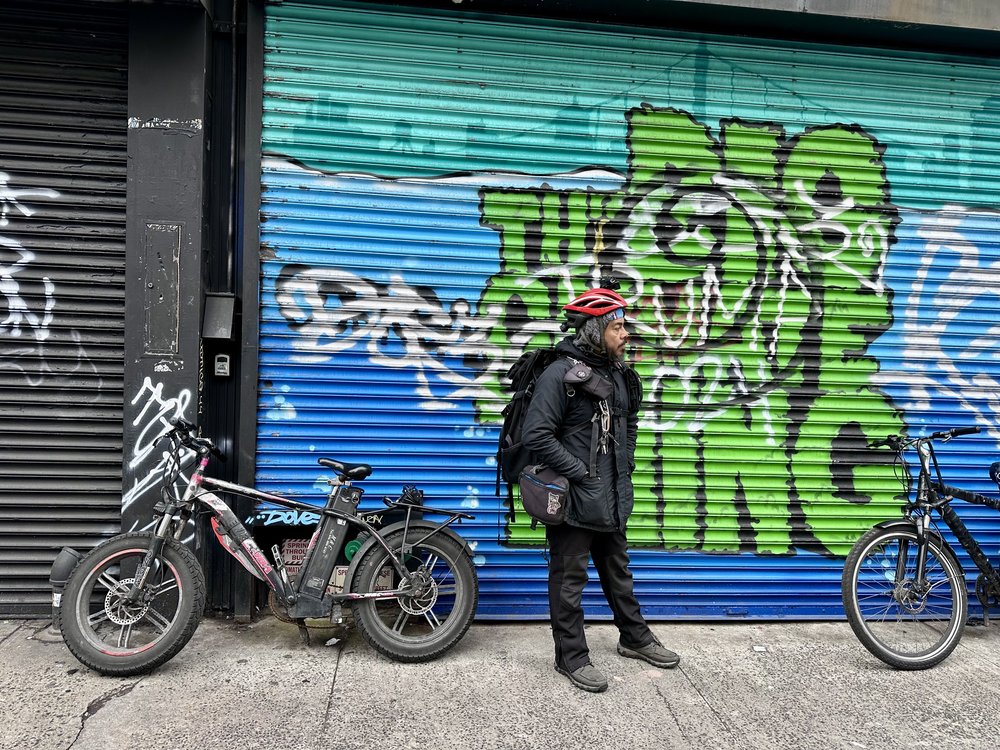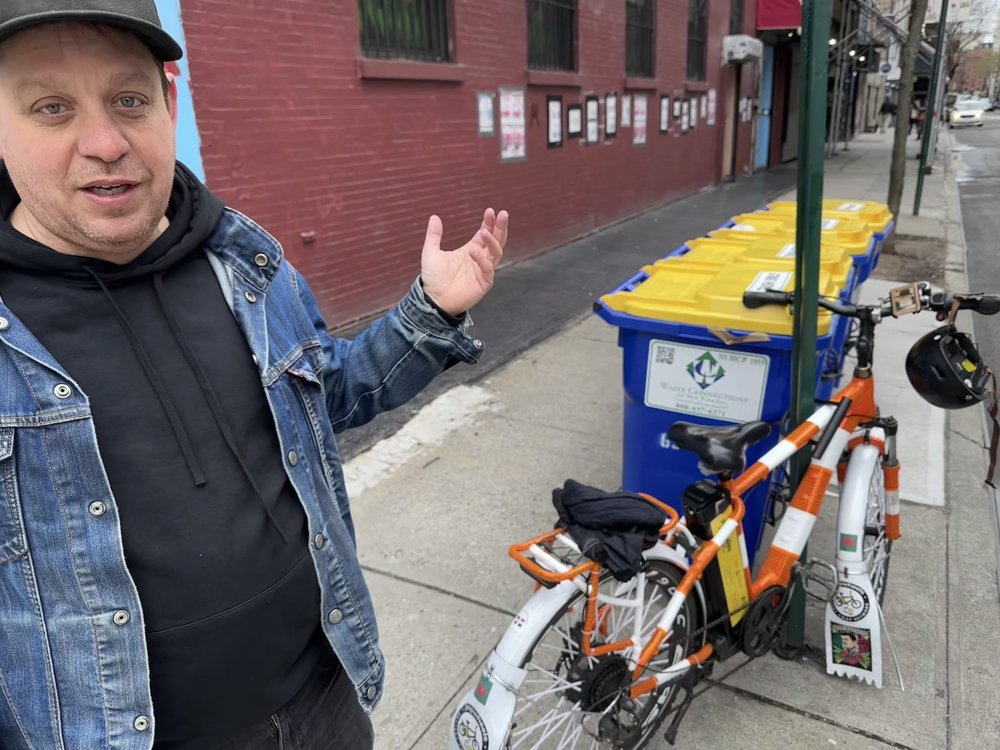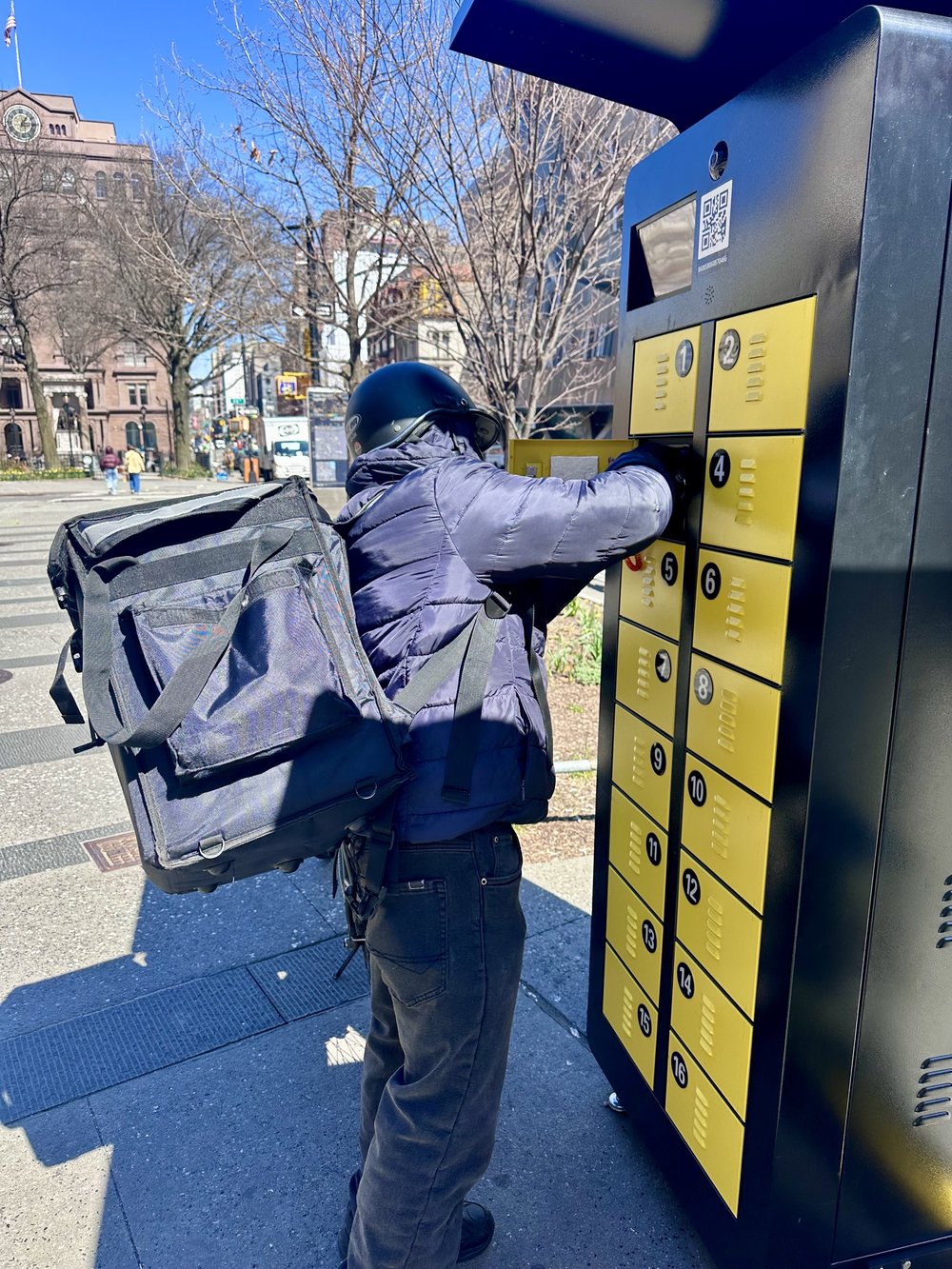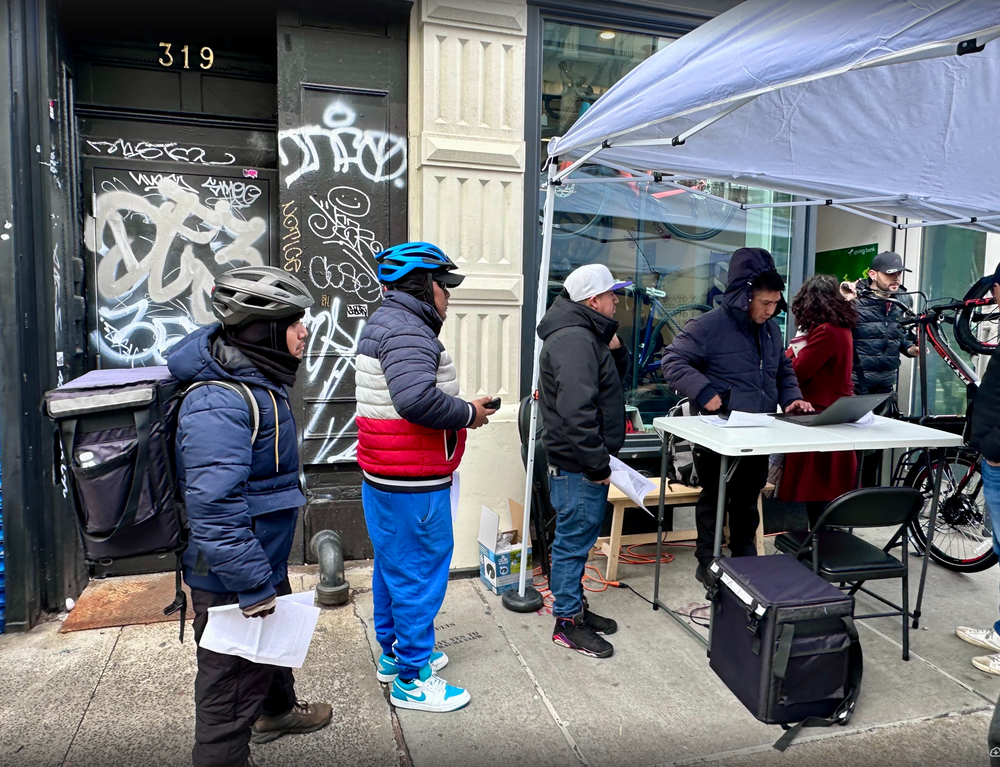NYC is trying to stop deadly e-bike fires with these 3 approaches
April 11, 2024, 6:01 a.m.
The rate of battery fires is down in 2024. Still, there have been 48 blazes so far.

New York City is trying to address the deadly threat of e-bike battery fires in various ways. City leaders have passed new laws, increased fines, initiated more aggressive regulation, and supported pilot projects with business and nonprofits.
That's because some cheap, retrofitted lithium-ion batteries for e-bikes and e-scooters don’t meet safety standards and are dangerously explosive. When the batteries ignite, they cause fast-moving, toxic fires that officials and experts say are difficult to extinguish.
New York is considered an epicenter of this new public safety problem. Its density leads workers to charge e-bikes inside apartment buildings and the city's large population drives high demand for delivery services, according to public safety experts.
Official data shows the rate of fires from lithium-ion batteries in the city has decreased so far this year. Through the first three months of the year, there were 48 fires caused by the batteries, resulting in 29 injuries and one death, according to the FDNY. Last year, nearly 270 blazes resulted in 18 deaths and 150 injuries.
Here are three ways the city is trying to help e-bike and e-scooter riders as well as keep people safe.

Public charging stations
A $950,000 city-funded pilot program has brought five e-bike charging hubs to neighborhoods in Brooklyn and Manhattan in recent weeks. For now, just 100 of the city's approximately 65,000 delivery workers have access to the program, which allows them to charge their batteries for free. Officials say it could expand after a six-month trial.
Other promised charging station plans have yet to materialize. Last year the city was awarded a $25 million federal grant to install 173 charging and storage stations at NYCHA apartment complexes, but none have yet opened.
A $1 million federally funded plan to create delivery worker hubs at vacant newsstands faces opposition from some local community boards. Neither of the first two planned locations — at City Hall and outside a subway station on the Upper West Side — has been built yet.
The charging stations in the pilot program look like beefed-up bike racks wired to utility cabinets. One in Cooper Square features charging options from three start-up companies: Swobbee and Popwheels allow riders to swap spent batteries for charged ones, and Swiftmile provides a rack that charges a bike when it’s parked.
“It could change the face of the city,” said Baruch Herzfeld, cofounder of New York-based Popwheels.
Delivery worker Pablo Tepoz said he preferred the battery swap to the docking station because it takes less time. But he said his current battery only works with the dock, which takes three to four hours to fill the battery to 80%.
Tepoz recently charged his battery for a few minutes as he waited for a delivery order to come in, and planned to return later. He sometimes charges the battery for longer, stops for a meal and then returns to work. He said he’s saving about $30 a month on electricity costs while the program is free.
But not all of the charging units at Cooper Square appeared to be functional one day last month. A spokesperson for the city Department of Transportation said glitches can be expected during the testing phase and the agency is working with the charging companies on any issues.

Getting dangerous batteries off the streets
It’s getting harder for delivery workers to buy e-bikes and lithium-ion batteries that are dangerous. City lawmakers recently enacted laws prohibiting the sale of e-bikes, e-scooters and batteries that don’t meet safety standards. Businesses that violate the law by selling these products can be fined, and repeat offenders can have their business premises shuttered.
The law applies to both stores and online retailers. An uncertified battery available this week on Amazon could not be shipped to New York City, but it was available for other parts of the country.
The FDNY and the city's Department of Consumer Protection also said they're also inspecting hundreds of retailers for compliance. A shop in Queens accused of selling uncertified batteries was shuttered in February.
Last month the city enacted a law requiring businesses that sell battery-run personal mobility devices to post lithium-ion safety information either in the store or through online retailers. Violators face fines.
A bill sponsored by Rep. Ritchie Torres, a Bronx Democrat, would require such standards for sales nationwide. It is awaiting a vote in the House of Representatives.

Voluntary bike trade-ins for delivery workers
Uber and DoorDash, which contract with many of the city's delivery workers, are helping to fund a trade-in program run by an organization called the Equitable Commute Project. Through it, workers can trade in their scooters, unregistered mopeds and e-bikes, including those with uncertified and dangerous batteries, for brand new models. The workers pay $800 apiece for new bikes usually worth $2,100.
Last week at the GoGo Gone bike shop on the Lower East Side, the Equitable Commute Project facilitated the trade-in of its 100th e-bike.
“It will help me to work better,” said Celerino Alberto, who was exchanging an old e-bike. “And help me so that it doesn’t start a fire.”
Melinda Hanson, the organization's cofounder, said 150 e-bikes and e-scooters will be traded in during this phase of the project and more companies that rely on deliveries could support the effort going forward.
“The hope is that the city, the apps and chain restaurants … will all come together, put money toward this and support these hardworking folks to upgrade their bikes,” she said.
The City Council passed a bill last year to create the city's own trade-in program, which would allow people to exchange uncertified devices and batteries for safer versions. The Department of Transportation is now working on setting it up, a spokesperson for the agency said.
E-bike battery fires keep climbing in NYC NYC e-bike owners wonder where to store them as landlords fear battery fires FDNY shutters Queens bike shop accused of building ‘Frankenstein’ e-bike batteries